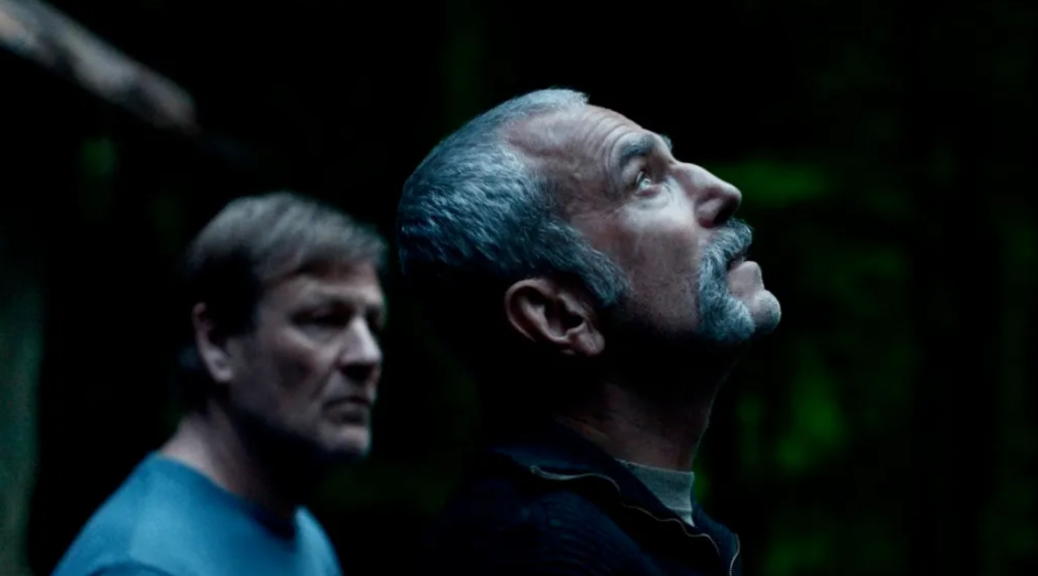Anemone
by Hope Madden
As a young filmmaker, would having arguably the most revered actor of his generation—perhaps of all time—as a father be a blessing or a curse? For Ronan Day-Lewis, directing his first feature with co-writer and lead actor (and dad) Daniel Day-Lewis, it seems to be working out.
Anemone is a tale of fathers and sons, of one generation of men inflicting damage upon the next, and the tenderness that either dies, finds an outlet, or runs to madness.
Sean Bean a is Jem, a good man who strikes out from his dodgy neighborhood in Northern England to the woods, led by the navigational coordinates on the back of a page that reads: Anemone: In Case of Emergency, Break Glass.
The coordinates lead him to his brother, Ray (DDL), a hermit since his time fighting against the IRA. Ray is wanted at home.
Like many of Day-Lewis’s greatest performances, his work here impresses with lengthy stretches of silence punctuated by a couple of brilliantly executed monologues. His lean and scrappy physicality belie the character’s vulnerability in ways that expertly match Ray’s reticent then vulgar speech.
Ray’s a man off the rails, while Bean deftly crafts a character who’s found comfort and strength in structure. Neither actor overplays the brothers’ differences, rather falling into a tenuous if lived-in familiarity.
The great Samantha Morton and an impressive Samuel Bottomley round out the cast, but as usual, all eyes are on Day-Lewis.
RDL knows it, not only providing memorable lines, but crafting an atmosphere that evokes Ray’s troubling inner landscape. Bobby Krlic’s (Eddington, Beau Is Afraid, Midsommar) score conjures an angry melancholy while moments of painterly surrealism deliver flashes of beautiful, hopeful madness. Even when lensing the natural elegance of Ray’s isolated world, RDL and cinematographer Ben Fordesman (Love Lies Bleeding, Saint Maud) evoke a magical splendor.
Anemone feels uncertain of how to resolve itself, to bridge the two worlds it creates. Structure failed Ray, and it nearly fails Anemone. But the film offers more than enough reason to believe in filmmaker Ronan Day-Lewis. And if you needed another reason to believe in actor Daniel Day-Lewis, well, here you go.


